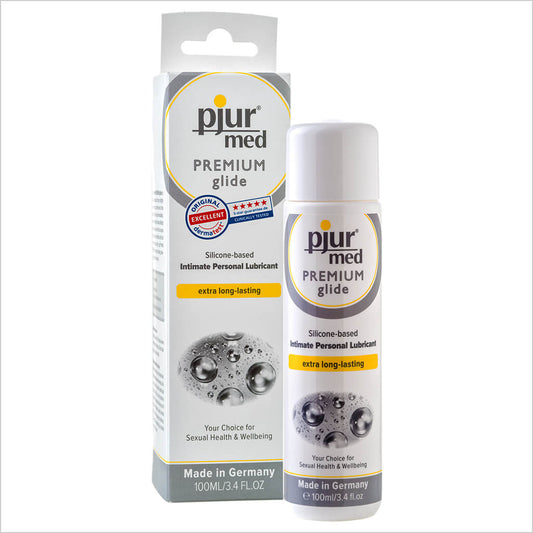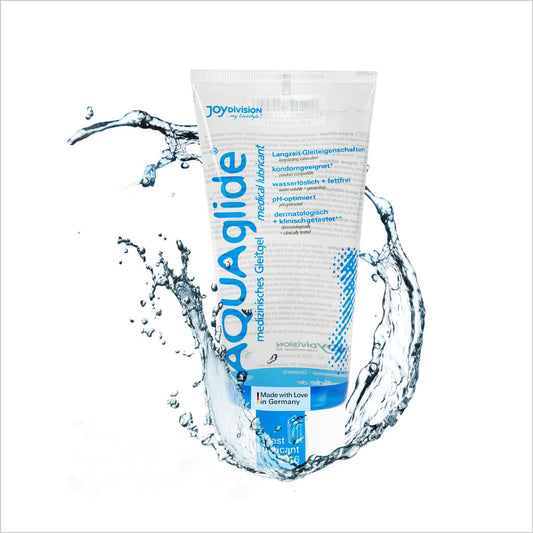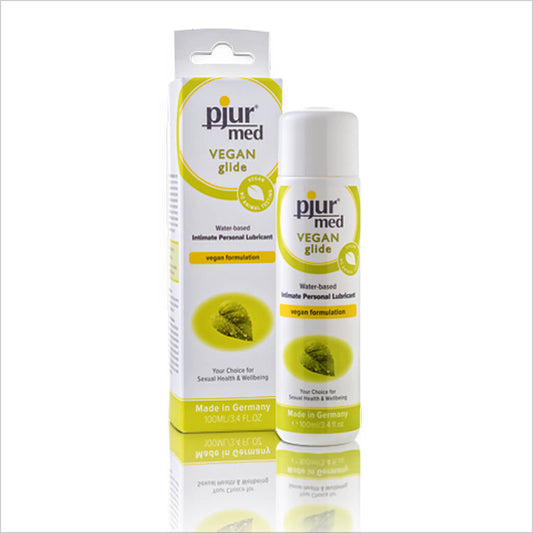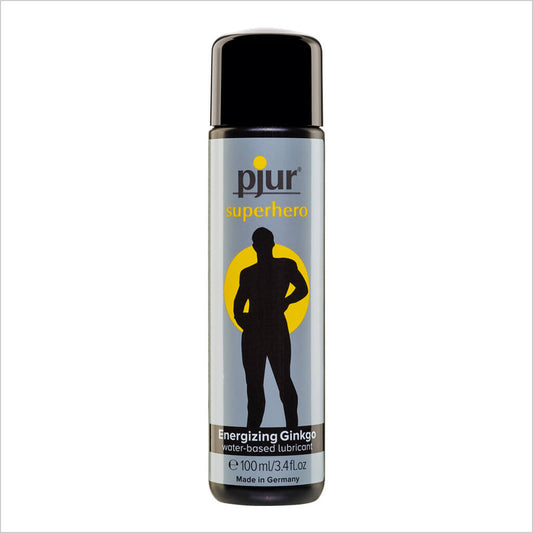A good lube has many uses and advantages, and good quality cannot be overstated. We get these questions from clients in our Adult Store in Pretoria every day: What lube should I use? What is the difference between water-based and silicone lube? Are they safe to use with condoms? And many more. So, we wrote this comprehensive sex lube guide to give you clear answers and help you choose the best product for your needs.
Why Lube Belongs in Every Bedroom Drawer
Lube is one of the most versatile products you can keep on hand for both solo use or when used with a partner. It reduces friction, increases comfort, and helps protect sensitive skin. Whether you are using toys, enjoying sex with or without condoms, exploring anal play, or having some solo time, the right lube can make a big difference.
For many, it comes down to stigma or outdated ideas. Lube is often wrongly seen as something only for older people, for those who are not aroused, or just for anal sex. Although many people still hold outdated ideas about lube, research shows that women who use it often describe sex as more comfortable, more pleasurable and easier to orgasm with. In a study of over 2,400 women, participants also believed their partners preferred more wetness during sex (Jozkowski et al., 2013).
The reality is that lube can also help with very real issues on top of adding to pleasure. Vaginal dryness affects more than 30% of women, and it can happen at any age (Kingsberg et al., 2013). Common causes include:
- Breastfeeding
- Stress, anxiety or relationship issues
- Rigorous exercise
- Menopause
- Certain medications such as contraceptives, antihistamines and antidepressants
- Smoking
- Not drinking enough water
- Chemotherapy or being a breast cancer survivor
- Autoimmune disorders
- Low oestrogen levels
Extra lubrication can ease discomfort, reduce the risk of micro tears, and make intimacy more enjoyable. Research has found that water or silicone-based lubricants are linked to higher sexual pleasure and satisfaction, and rarely cause genital symptoms (Herbenick et al., 2011).
So, let’s look at how to choose the right one for your needs.
Choosing the Right Lube for You
There are several types of lube, each designed for different situations and preferences. Whether you are buying your first bottle or already have a go-to, it can be useful to know the options and when to use them.
Water-Based Lubricant
If you are buying lube for the first time, start here. Water-based lube is the most common type, affordable, and works for almost any kind of play. It is safe to use with both latex and non-latex condoms and can even reduce the risk of condoms tearing. It will not damage your toys, is easy to wash off with water, and generally will not stain sheets or clothing.
It is also a good choice for sensitive skin as it is less likely to cause irritation. Some water-based lubes, especially flavoured or warming and cooling ones, contain glycerin. Glycerin makes them taste sweeter but can contribute to yeast infections in some people. Always check the label if you are prone to irritation or infections.
Pros: Versatile, easy to find, affordable, safe for use with condoms and toys
Cons: Washes away in water, may become sticky and need reapplying
Silicone Based Lubricant
Silicone-based lubes are usually odourless, tasteless, very slippery and smooth. They last longer than any other type of lube, which means you will not need to reapply as often as with water-based lube. They need less product to get the job done and are an excellent choice for extended bath or shower sessions because they do not wash away easily. The trade-off is that they take more effort to wash off and can leave some stains, but regular soap and water will remove them.
The main drawback is that they are not safe for use with silicone sex toys, as they can damage the surface over time and make it sticky. They are perfectly safe to use with hard plastic, glass or metal toys. Most silicone-based lubes are hypoallergenic, safe for use with condoms, and work very well for anal play.
Pros: Very slippery, long-lasting, requires less product, safe for use with condoms, water-resistant, hypoallergenic
Cons: Harder to wash off, can damage silicone toys
Oil Based Lubricant
Oil-based lube is less common than water- or silicone-based options, but it is a good choice if you want something that lasts a long time without reapplying. It gives a very slippery feel and is ideal for masturbation (with or without toys), unprotected intercourse, and bath or shower play because it does not wash away easily. It can also double as a massage oil, so you can move seamlessly from massage to intimacy without switching products.
The main drawback is that it is not compatible with latex condoms, as it can break down the latex and cause tearing. The same warning applies to latex toys. Oil-based lubes can also slightly increase the risk of vaginal infections and may stain sheets and clothing.
Pros: Long-lasting, works well in the shower or bath, doubles as a massage oil
Cons: Harder to clean, not compatible with latex, may increase risk of infections
Natural Oil Lubricants
Natural oil lubricants, such as coconut, olive or avocado oil, have been used for centuries, but they are not without downsides. While they can feel smooth and last a long time, they are not compatible with latex condoms and can increase the risk of infections for some people by altering vaginal pH or trapping bacteria. They also stain sheets and are harder to clean.

It is important to distinguish between raw kitchen oils and natural oil-based lubricants made for sexual use. Products formulated for intimacy, like Pjur Med Vegan Glide or other plant-based options, are blended to be body-safe and pH-appropriate, but if they are oil-based, they are still not latex-safe.
Pros: Can feel natural, may be plant-based and eco-friendly, often doubles as massage oil
Cons: Not compatible with latex, harder to clean, may increase risk of infections, can stain
Safety Tip: Avoid using Vaseline or raw kitchen oils with latex condoms or latex toys. These can cause the latex to break down, making condoms ineffective, and may also increase the risk of irritation or infection.
Things to avoid when using lube
Most personal lubricants today are safe for regular use, but it is still possible to react to certain ingredients (Andelloux, 2011). Always read the label before buying. If you notice discomfort, irritation or pain during or after use, stop using the product and rinse the area with water.
Some ingredients are more likely to cause irritation or dryness. Check for these on the label:
- Glycerin or Glycerol – common in flavoured, warming or cooling lubes, may increase the risk of yeast infections in some people
- Nonoxynol-9 – a spermicide that can cause irritation with frequent use
- Parabens – preservatives that can trigger allergic reactions in sensitive users
- Propylene glycol – can cause dryness or irritation for some people
- Petroleum – degrades latex condoms and is difficult to clean off
-
Chlorhexidine – an antiseptic that may cause skin reactions or disrupt natural bacteria balance
How to use lube
Using lube is simple. Apply as much as you need to the area you want to lubricate. This could be the vulva, vagina, anus, penis or directly onto a toy. You can also put a little on your fingers first for more control.
A few drops go a long way. You can warm the lube in your hands before applying if you prefer, but it will naturally warm up with body heat. If it starts to dry out during play, just add more.
Tips for Best Use:
- Apply directly to the area or toy before you start
- For condoms, add lube inside the tip before rolling it on and more on the outside
- Reapply as often as you need, especially for anal play or longer sessions
- Use the right type for your activity (for example, silicone lube for water play, water-based for silicone toys)
Tips For Buying Lube
- If you are using condoms, make sure your lube is compatible. Oil-based lubes and Vaseline can damage latex and cause condoms to break.
- For use with sex toys, stick to water-based lubes. Silicone and oil-based lubes can damage silicone and some rubber toys.
- For bath or shower play, silicone-based lubes work best because they do not wash away easily.
- For anal play without a condom, silicone lube is the most effective because the anal canal does not produce natural lubrication. If you are using a condom, opt for a water-based lube and be ready to reapply.
- If you experience vaginal dryness, avoid flavoured, warming or cooling lubes that may contain glycerin, as this can dry out faster or increase the risk of yeast infections.
- When buying a water-based lube for vaginal use, look for a pH between 3.8 and 4.5, which matches the natural vaginal pH.
- Always check the ingredients list before buying. If you are unsure, do a small patch test on your inner arm to see if any irritation occurs.
- If you are trying to conceive, choose a fertility-friendly lube. Some lubricants can slow sperm movement or contain spermicide, so check labels carefully.
Frequently Asked Questions
-
What’s the best lube for sex?
It depends on what you are doing. For most people, a good-quality water-based lube is the safest bet because it works with all condoms and toys. If you are in the shower or want something that lasts longer without reapplying, try a silicone-based lube. Just avoid silicone toys with silicone lube as it can damage them.
-
Can I use coconut oil or Vaseline as lube?
You can, but there are some big downsides. Oils like coconut or Vaseline will break down latex condoms, making them unsafe for pregnancy or STI protection. They can also be harder to wash off and might increase the risk of infections in some people. If you want an oil feel, go for a lube that is made for sex and is body-safe.
-
Does lube make sex feel better?
For most people, yes. Lube reduces friction, which means less chance of discomfort or micro-tears, and it often makes things feel smoother and more pleasurable. Even if you do not think you “need” it, you might be surprised by how much nicer it feels.
-
Is lube safe to use every time?
Absolutely. If you choose a body-safe lube without ingredients you react to, it is fine to use as often as you like. Just keep an eye on the ingredients list if you have sensitive skin.
-
Can I use lube with condoms?
Yes, just make sure the lube is condom-safe. Water-based and silicone-based lubes work with latex and non-latex condoms. Oil-based lubes and Vaseline will damage latex, so avoid those with latex condoms.
-
What’s the difference between water-based and silicone lube?
Water-based lube is versatile, safe for all toys and condoms, and easy to wash off, but it can dry out faster and may need topping up. Silicone lube lasts much longer and is water-resistant, but it is not safe for silicone toys and can be harder to clean.
-
Does lube expire?
Yes. Check the packaging for the expiry date. Expired lube might lose its texture, smell odd, or be less safe to use. If it has changed colour or smell, toss it and get a fresh one.
-
Can I use spit instead of lube?
It might work in the moment, but it is not the same as lube. Saliva dries quickly, can get sticky, and can introduce bacteria that might cause irritation. Lube is designed to stay slippery and be gentle on your body.
-
Can lube cause yeast infections?
Some lubes, especially flavoured or warming ones with glycerin, can make yeast infections more likely in people prone to them. If you are sensitive, choose a glycerin-free and pH-balanced lube.
-
How much lube should I use?
As much as you need to feel comfortable. Start with a small amount and add more if things start to feel dry or sticky. There is no “too much” as long as you and your partner are happy with the feel.
Conclusion
Lube is one of the simplest ways to make intimacy more comfortable and enjoyable, whether you are alone or with a partner. It reduces friction, protects delicate skin and can make exploring different types of play easier. The key is to choose a lube that suits your needs, your body and the activity you have in mind.
If you are not sure where to start, try a good-quality water-based option and see how it feels. From there, you can experiment with silicone-based or natural oil-based lubes depending on your preferences. The right lube is the one that feels good, keeps you comfortable and works for your type of play.
You can browse our range of body-safe lubricants in-store or online to find the one that suits you best.
References
Andelloux, M. (2011) ‘Products for sexual lubrication: understanding and addressing options with your patients’, Nursing for Women’s Health, 15(3), pp. 253–257. DOI: https://doi.org/10.1111/j.1751-486X.2011.01642.x
Herbenick, D. et al. (2011) ‘Characteristics of condom and lubricant use among a nationally representative probability sample of adults ages 18–59 in the United States’, The Journal of Sexual Medicine, 8(2), pp. 468–478. DOI: https://doi.org/10.1111/j.1743-6109.2010.02067.x
Jozkowski, K.N. et al. (2013) ‘Women’s perceptions about lubricant use and vaginal wetness during sexual activities’, The Journal of Sexual Medicine, 10(2), pp. 484–492. DOI: https://doi.org/10.1111/jsm.12022
Kingsberg, S.A. et al. (2013) ‘Vulvar and vaginal atrophy in postmenopausal women: findings from the REVIVE (REal Women’s VIews of Treatment Options for Menopausal Vaginal ChangEs) survey’, Journal of Sexual Medicine, 10(7), pp. 1790–1799. DOI: https://doi.org/10.1111/jsm.12190







